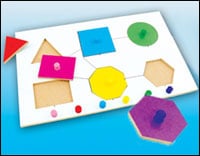
You are at a dinner party, enjoying the company of friends and taking delight in making new ones. You sit down to begin enjoying the lovely feast set before you and you are unexpectedly aware that you can’t open your mouth... You feel helpless and embarrassed.
If you suffer from TMJ, the ability to open your mouth fully or widely can be limited. Why? Your jaw muscles become tender, stiff and can begin to spasm, preventing you from fully opening your mouth. Or the disc located in your jaw gets ‘stuck’ in a position that prevents your jaw joint from functioning properly. Either way, a mouth that is restricted in opening and closing is obviously going to affect you physically, socially, emotionally and let’s not forget being passed up for the next dinner party.
Q: What’s the most used joint in your body? A: Wrong. It’s not your knee. It’s not your ankle. It’s your TMJ.
Think about that for a moment! Every time you talk, chew, swallow, sing, yawn – you are using this joint. It’s one of the most important joints in your body while at the same time, probably the least recognized. Breathing, eating, drinking – all of them impossible without healthy and properly functioning jaws.
Snap, crackle and pop. Great for breakfast cereal. – Detrimental for your jaw…
Clicking, cracking and popping in your jaw joint is one of the most common indicators of TMJ. You may experience pain in combination with the clicking and in some cases, the cracking is so loud, it is heard by others when you chew or talk.
The sound originating from your mouth is caused by a displaced disc located in your jaw. A healthy and normal TMJ is quiet when it’s performing its function. Clicking, popping and cracking are indicators that your jaw joint is unstable and a signal that these symptoms should be checked.
Something just doesn’t fit …

A proper, balanced bite will ensure your jaw stays healthy and in it’s natural state. An imbalanced bite stresses and strains the jaw, creating issues in the joints, muscles, nerves and all its related operations.
Form and functionality are essential
With so many basic functions (chewing, swallowing, breathing, talking, drinking) dependent on a healthy TMJ, you should get checked by your dentist if you experience cracking, popping, limited movement or overall functionality problems with your jaw.
If taken care of at an early stage, it can prevent a lot more significant problems down the road.
